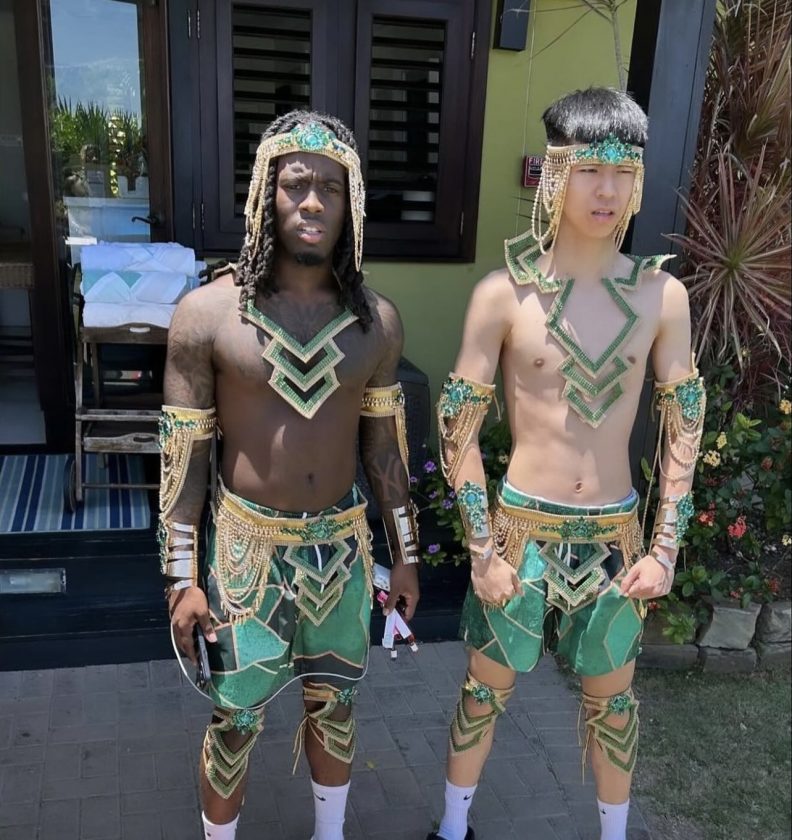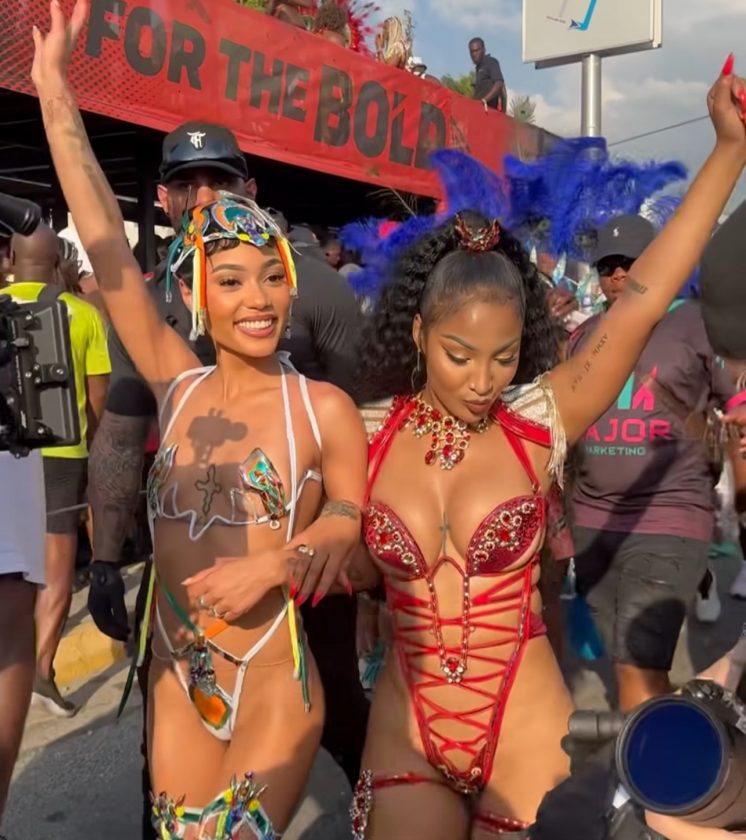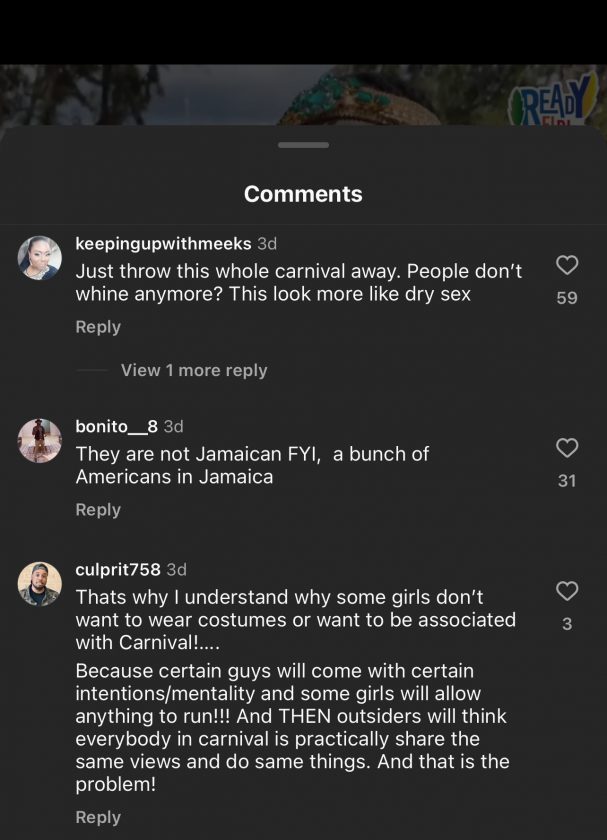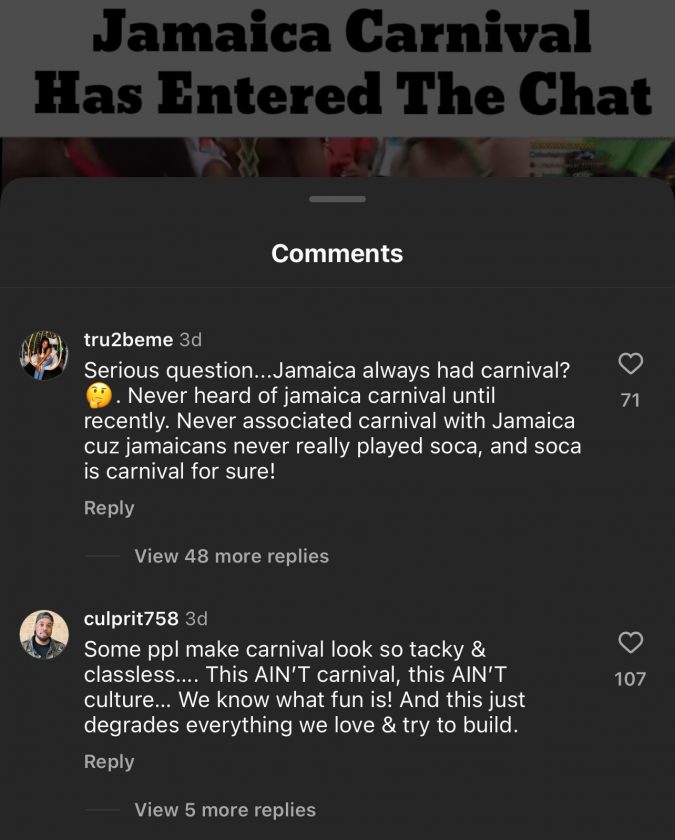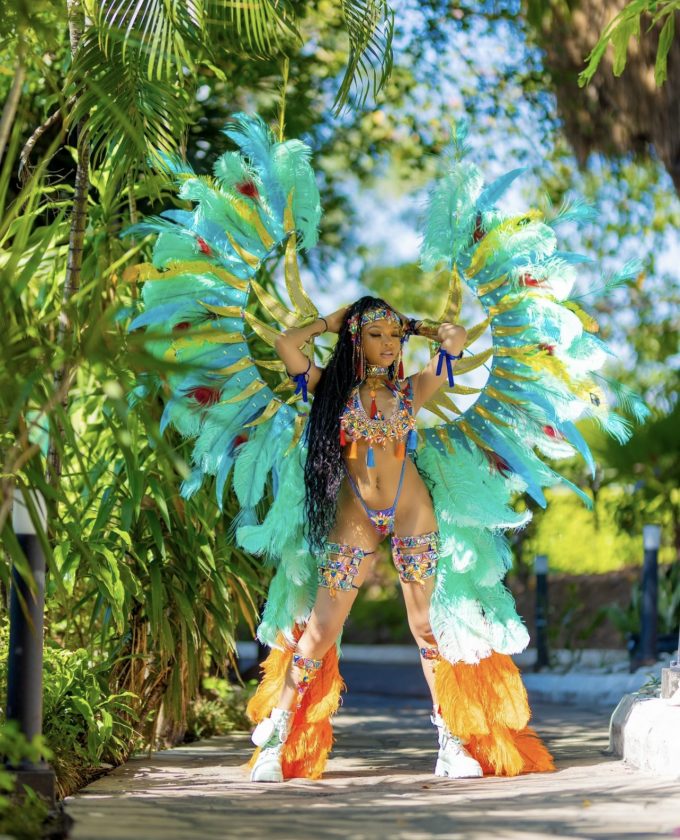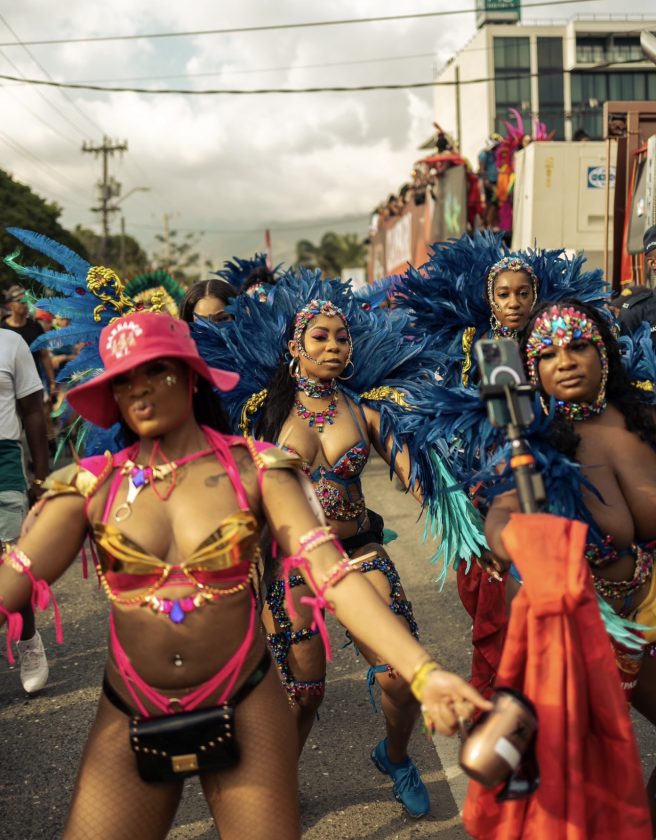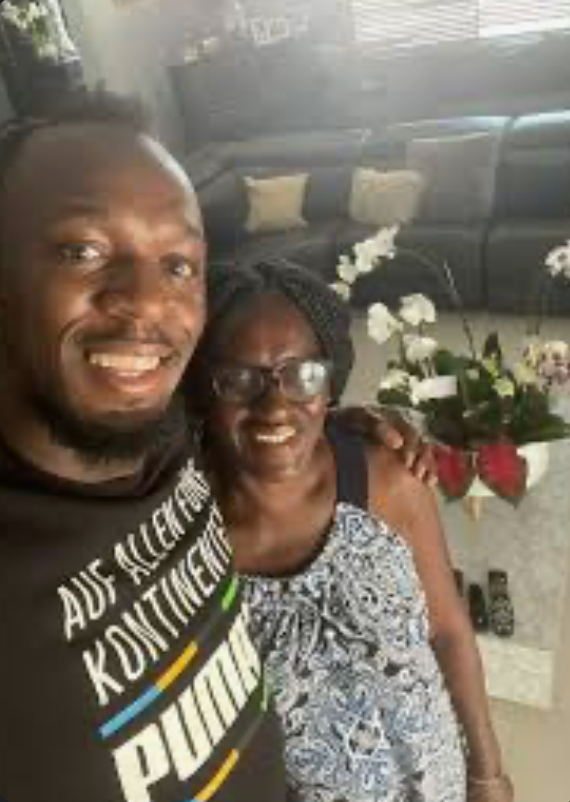
Twitch streamers Kai Cenat and Ray 
Shenseea and American rapper Coi Leray
Jamaica Carnival 2024 made headlines for all the wrong reasons, sparking a heated debate on social media about cultural appropriation, sexualization, and the authenticity of the event. The controversy erupted after a viral clip showed popular streamer Kai Cenat and his friends “daggering” female revelers in true dancehall fashion while streaming the event live on Twitch. The clip ignited a firestorm of criticism from both Caribbean and non-Caribbean social media users, who expressed their distaste for what they perceived as disrespectful behavior and cultural insensitivity.
Below are viral clips of Kai Cenat and his crew with revelers.
https://www.instagram.com/reel/C5e7Yv4NyK4/?utm_source=ig_web_copy_link
https://x.com/Tropixsofficial/status/1777073503906214075
Many non-Jamaican critics took issue with the portrayal of Jamaica Carnival as a platform for sexualizing women and mocking Jamaican culture. They argued that the event was being used as an excuse to objectify women and perpetuate harmful stereotypes, rather than celebrating the vibrant traditions and heritage of the Caribbean. Some even drew parallels to the infamous “Freaknik” event in Atlanta, Georgia, notorious for its debauchery and numerous sexual assault cases.
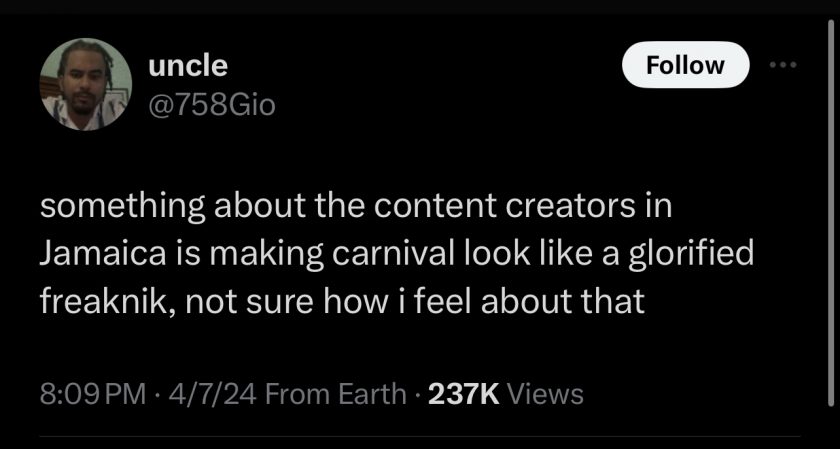
Furthermore, there were concerns raised about the lack of authenticity in Jamaica Carnival, with critics lamenting the absence of true carnival spirit and the dominance of sexualized imagery. They criticized the event for deviating from its cultural roots, citing the loss of traditional art forms like whining and the scarcity of soca music, which are integral elements of Caribbean carnival culture. Additionally, the presence of American celebrities at Jamaica Carnival raised eyebrows, with some questioning their understanding of and respect for Caribbean culture.
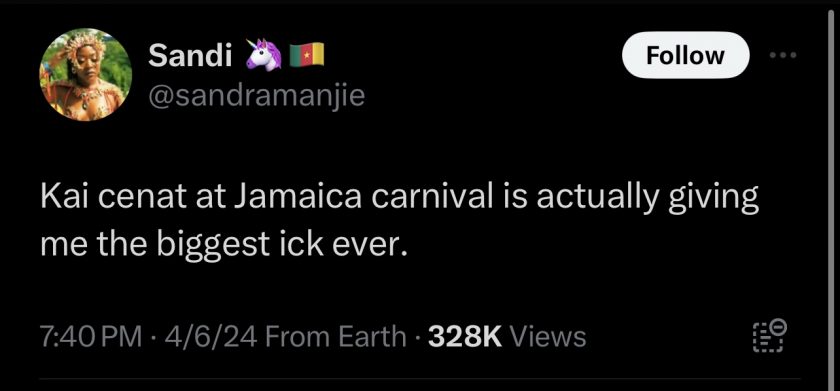
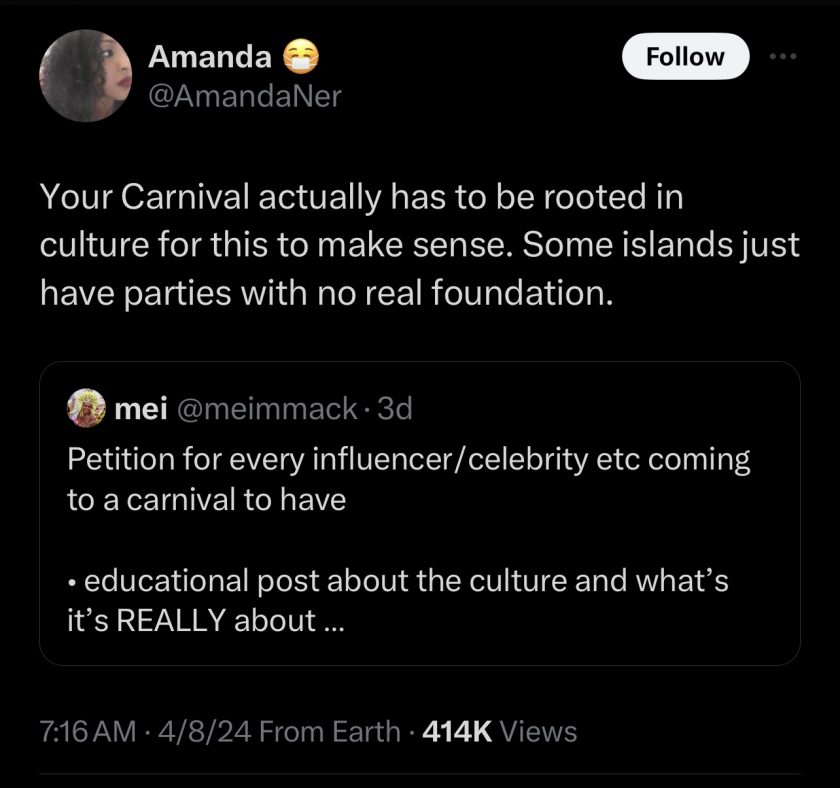
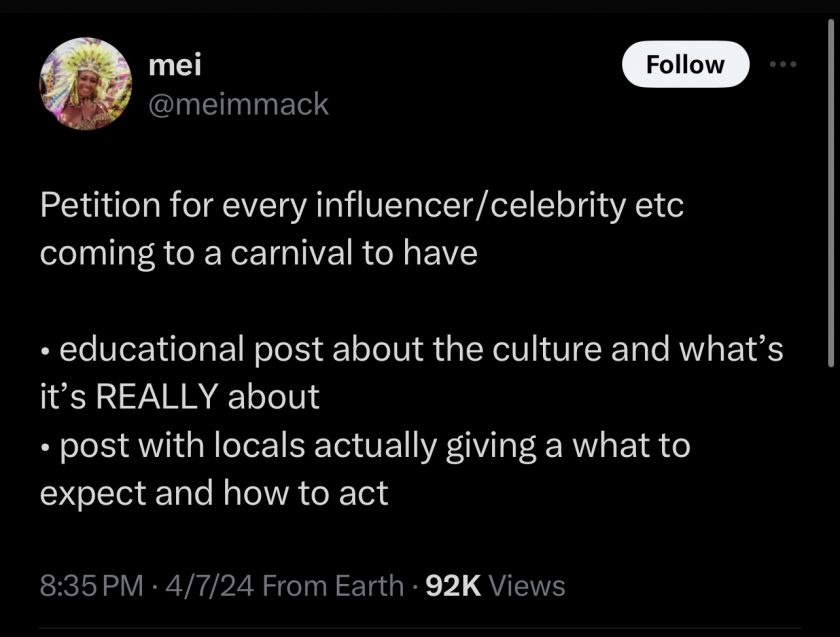
In response to the backlash, Kai Cenat defended himself by highlighting his Caribbean heritage and upbringing. He asserted that his Trinidadian and Haitian roots, combined with his close ties to Jamaican friends and familiarity with Caribbean cuisine, qualify him to partake in and appreciate events like Jamaica Carnival. He emphasized his genuine love and respect for Jamaican culture, dismissing accusations of cultural appropriation as unfounded.
Below is his response to the backlash.
https://www.instagram.com/reel/C5iuMflOO43/?utm_source=ig_web_copy_link&igsh=MzRlODBiNWFlZA==
Moving forward, organizers of Jamaica Carnival and similar events must engage in meaningful dialogue with stakeholders to address concerns about cultural appropriation and sexualization. Emphasizing inclusivity, education, and cultural exchange can help foster a more respectful and authentic celebration of Caribbean heritage, ensuring that events like Jamaica Carnival remain true to their origins of reclaiming cultural vitality while embracing diversity and creativity. Ultimately, by honoring and uplifting Caribbean culture in all its richness and complexity, we can create spaces where everyone feels welcome, valued, and empowered to participate.

